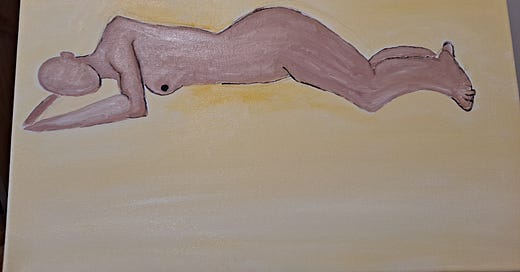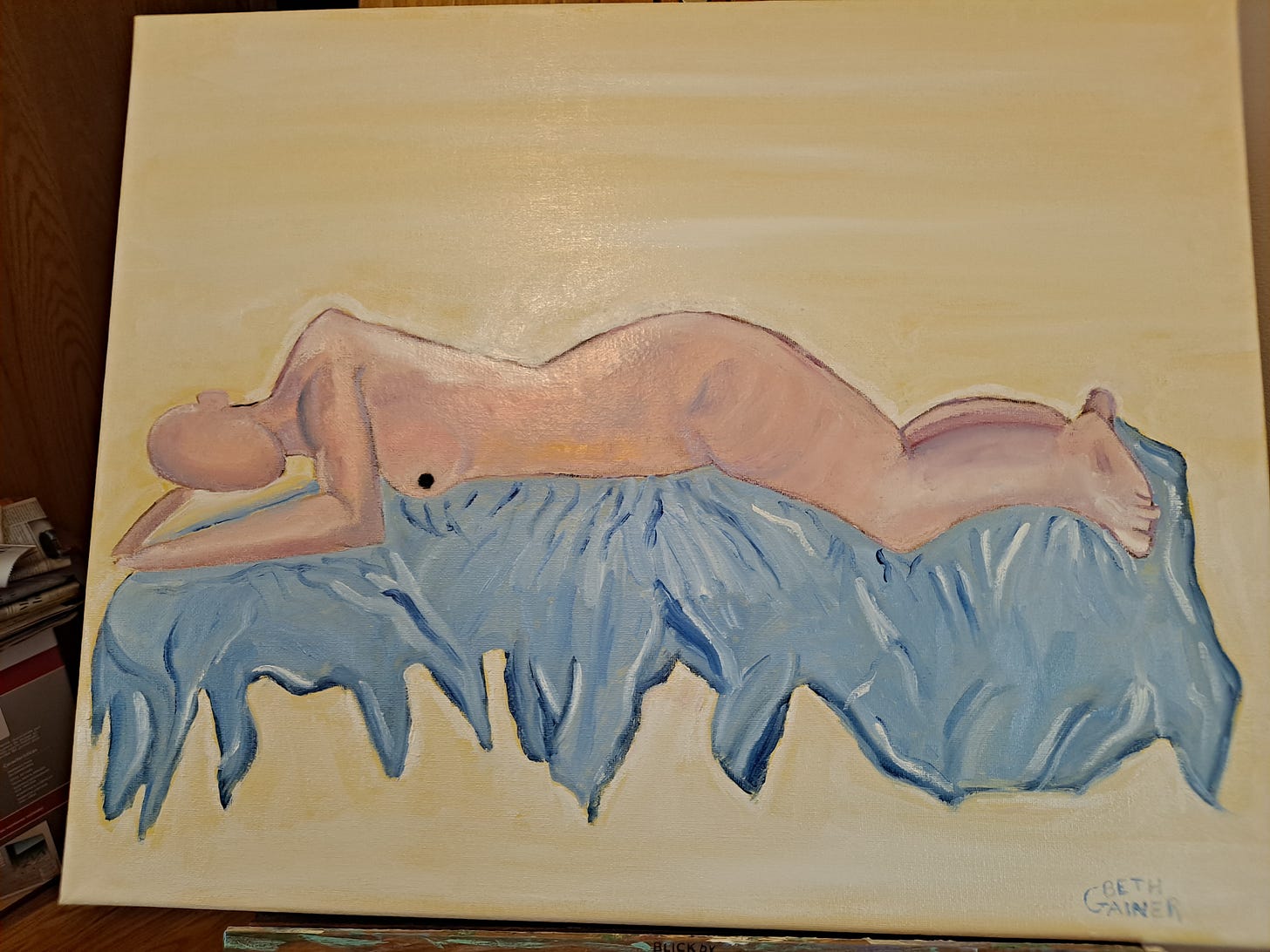I’ve survived breast cancer so far. I’ve been poisoned, burned, and slashed to the max.
And I lived to tell the world about it. I am so very lucky and grateful to be alive.
But being alive is also a burden – so heavy that I fall apart under its weight.
I wonder, why did I live and others die? I was no better, not morally or ethically superior. People whose world has not been turned upside down by cancer have told me some infuriating things: “God doesn’t give you more than you can handle,” “There’s a reason for everything, and you lived for this reason,” and “If you have to have cancer, breast cancer is the best one to have.”
To these and other stupid, thoughtless comments, I cry bullshit.
There is no reason why I lived and others died. None. It’s part of life’s randomness. I am no better than those who died from cancer. I’m not the special chosen one. I am not a damn hero. And, no, I am no braver than anyone else in the cancer world. In fact, I am scared. A lot.
For many years, I have carried a secret that has shaken my very core: I am still grappling with survivor’s guilt and imposter syndrome.
Disturbing: Why did I survive?
And even more chilling, Why am I glad I lived?
Real People, Real Cancer
When my good friend and fellow faculty member Virginia got diagnosed with leukemia, I thought that maybe she could beat it. Things looked good for a while treatment-wise, but then she died. I loved her. I still have her phone number as a contact, never to be deleted.
Then there’s Theresa. I didn’t know her well, but I knew she was 39, had metastatic breast cancer, and her goal was to live to 40. She didn’t make it to 40, and left a husband and five-year-old daughter behind.
And then there’s Faun. I’ve written about my friend Faun before on a blog years ago, but not in the Substack space, so here it goes:
Years ago, Faun and I met at a local support group, ironically titled "Post-Breast Cancer Support Group." The support group was moderated by a social-worker-breast-cancer-"survivor," and focused on the physical and psychological aftermath of cancer. In other words, to be part of this group, you had to be physically “done” with breast cancer. (Yes, ridiculous looking back, but there you have it.)
Faun was part of the group, and she and I hit it off immediately. We had so much in common: We were both originally from the East Coast and were college English professors in the Chicago area, as well as writers. Each of us had a brother we were close to. Faun and I were both relatively young and shared the dream of one day having children, but chemotherapy rendered us both infertile. We each wanted to adopt a child. We shared the same post-cancer dreams. Faun and I became forever friends.
Except “forever” doesn’t really last. In her prime of life, Faun’s breast cancer never left her; it metastasized, and she suffered for years. I helped her the best I could. I grieved deeply and privately while she was going through cancer hell, and I was devastated upon her death. When she died, however, I felt relief that she was no longer suffering. I feel guilty about my relief, as well.
I got to live out my dream of adopting a baby, who is now a fun, sweet, sassy teenager. I am so happy to be a mom, but I often think about how Faun’s dream died with her.
Truth is, cancer doesn’t care about a person’s age, sex, race, sexual orientation, or anything else, for that matter. It also strikes the patient’s friends and family, leaving devastation in the wake of their loved one’s death.
Thankfully, I have a wonderful psychology team, which helps me immensely. But the survivor’s guilt is always an underlying theme in my life.
Feeling a great deal of survivor’s guilt lately has turned my focus back to my art series: Breast Cancer, Female and Young. I reworked the draft from this:
To this:
I changed the color of the patient to incorporate pinks, blues, and purples, as I really love these color combinations for figures. She is bald and does not have a face and hands, and I’m leaving it up to the viewer to interpret what this means. I wanted her to lay on a blue blanket suspended in air, again leaving the entire painting up to the reader to decipher its meaning.
A huge surprise for me is that the blanket actually is the best work on fabric material that I’ve ever done. I didn’t use a reference photo; instead, I just used my imagination. I’m shocked that it actually looks like material, knowing how much I’ve struggled creating fabric in the past. Maybe all the practice work on fabric has paid off, but I know I haven’t mastered this. And, interestingly, I don’t know how I did this, which troubles me a bit because I don’t know if I could replicate effective fabric material. I mean, what if I’m a one-hit wonder?
The other surprise for me is that when I began revising this painting, I had no idea I would finish it in this session. I’m completely satisfied with it and wouldn’t change a thing. I signed it. Done.
So dear readers, meanwhile, I will continue living on the edge, where guilt intersects the joy of living. And this has to suffice for now.






"Why am I glad I lived?" That question you posed, Beth, chills me. It's a sentiment so human, yet so taboo. It’s the flipside of survivor's guilt, a tangled knot of conflicting emotions. I appreciate you putting it into words because it’s something I think so many survivors must grapple with but feel they can't voice. We’re “supposed” to be simply grateful, purely joyful, but your honesty peels back the layers to show the complex emotions beneath. It's brave to admit that joy can be laced with a feeling that is almost betrayal. And by putting that feeling into words, you give others permission to do the same and to confront their inner battles, which makes you more relatable than you know.
Yes! Thank you for calling out those infuriatingly empty phrases. I've heard them all, and they truly miss the mark.